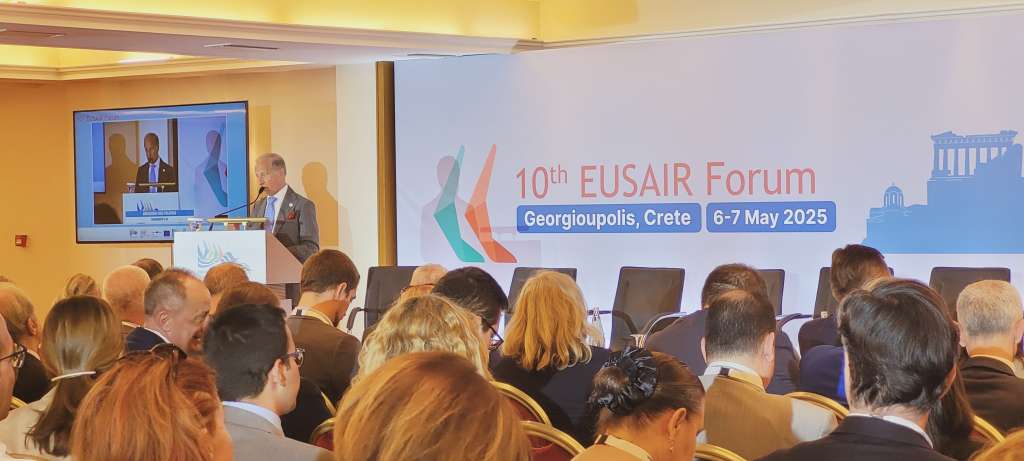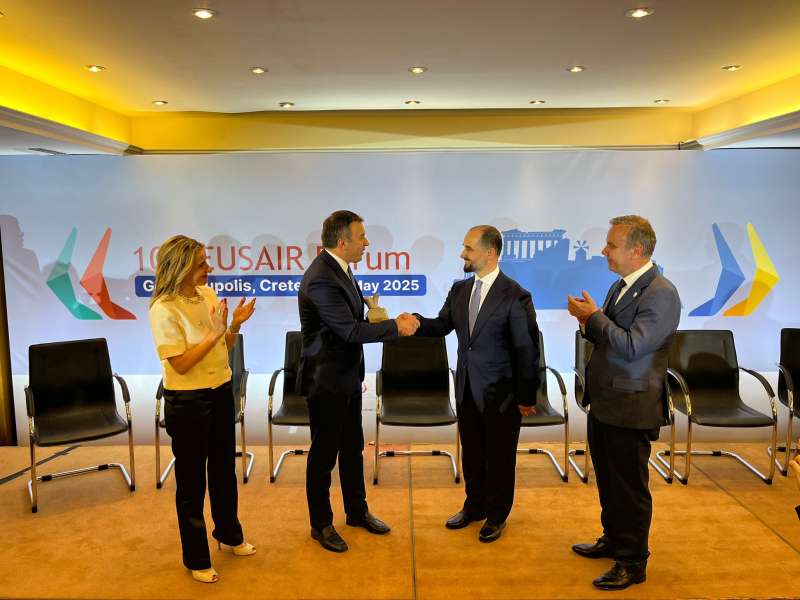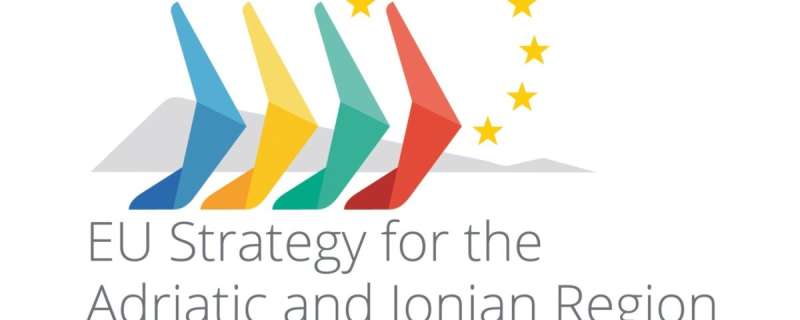CRETE, May 6 (FENA) – The central message at the opening ceremony of the 10th Annual Forum of the European Union Strategy for the Adriatic and Ionian Region (EUSAIR), held on May 6–7 in Georgioupolis on the Greek island of Crete, was that young people are the key actors on the path toward a future that is shared, green, sustainable, and inclusive.
According to FENA's correspondent, this milestone edition of the forum also marks the end of Greece's presidency of the macro-regional initiative. It focuses on the achievements of the past decade, the revised Action Plan, and strategic directions for the future, especially in light of the green transition, EU enlargement, and social cohesion challenges.
Greek Deputy Foreign Minister Tasos Chatzivasileiou highlighted Crete’s symbolism as a meeting point of civilizations, stating that the EUSAIR strategy reflects a collective will for cooperation, resilience, and sustainable development.
''Crete, as a maritime link between East and West, is the ideal place to reaffirm our commitment to a common future. During our presidency, we focused on five interconnected priorities: European integration, the future of cohesion policy, green transition, blue economy, and environmental protection. Youth were at the heart of this vision,'' Chatzivasileiou said.
He added that Greece prioritizes maritime security and energy connectivity through renewables and aims to be a regional leader in achieving climate neutrality.
''We have shown together that the green transition is not a luxury but a necessity. We also emphasized youth education and training in blue skills, as they are the drivers of innovation and sustainable development,'' he added.
Jean-Pierre Halkin, head of unit at the European Commission’s Directorate-General for Regional and Urban Policy, commended Greece's presidency for its vision and strategic leadership.
''Greece made a breakthrough by revising the strategy and introducing a fifth pillar – social cohesion. This means we now speak not only about economy, environment, and infrastructure but also about real citizen needs, urban-rural balance, and tackling depopulation,'' said Halkin.
He underlined the strategic importance of EUSAIR in the context of EU enlargement to the Western Balkans.
''The strategy should help the region’s countries make use of tools such as the Investment Plan and the Growth Plan for the Western Balkans. It must serve as a bridge between EU policies and local needs,'' Halkin emphasized.
He announced that the European Commission will adopt a new Multiannual Financial Framework (MFF) for the post-2027 period in the coming weeks and urged EUSAIR member states to strategically position the macro-region within the new framework.
''It’s vital to deepen the multi-level governance model – not just member states, but cities, municipalities, civil society, academia, and especially youth must have an active role. The future of this region belongs to young people, and we must give them a voice,'' Halkin concluded.
During the forum, the adoption of the revised EUSAIR Action Plan was also announced, officially opening a new chapter in its implementation.
Over the two-day program, participants will discuss sustainable tourism, energy connectivity, the blue and green economy, climate change challenges, and better youth involvement in shaping public policy.
(FENA) A. B.













